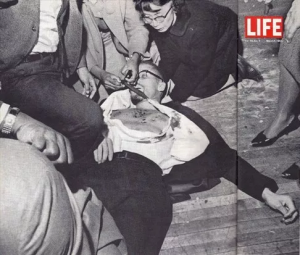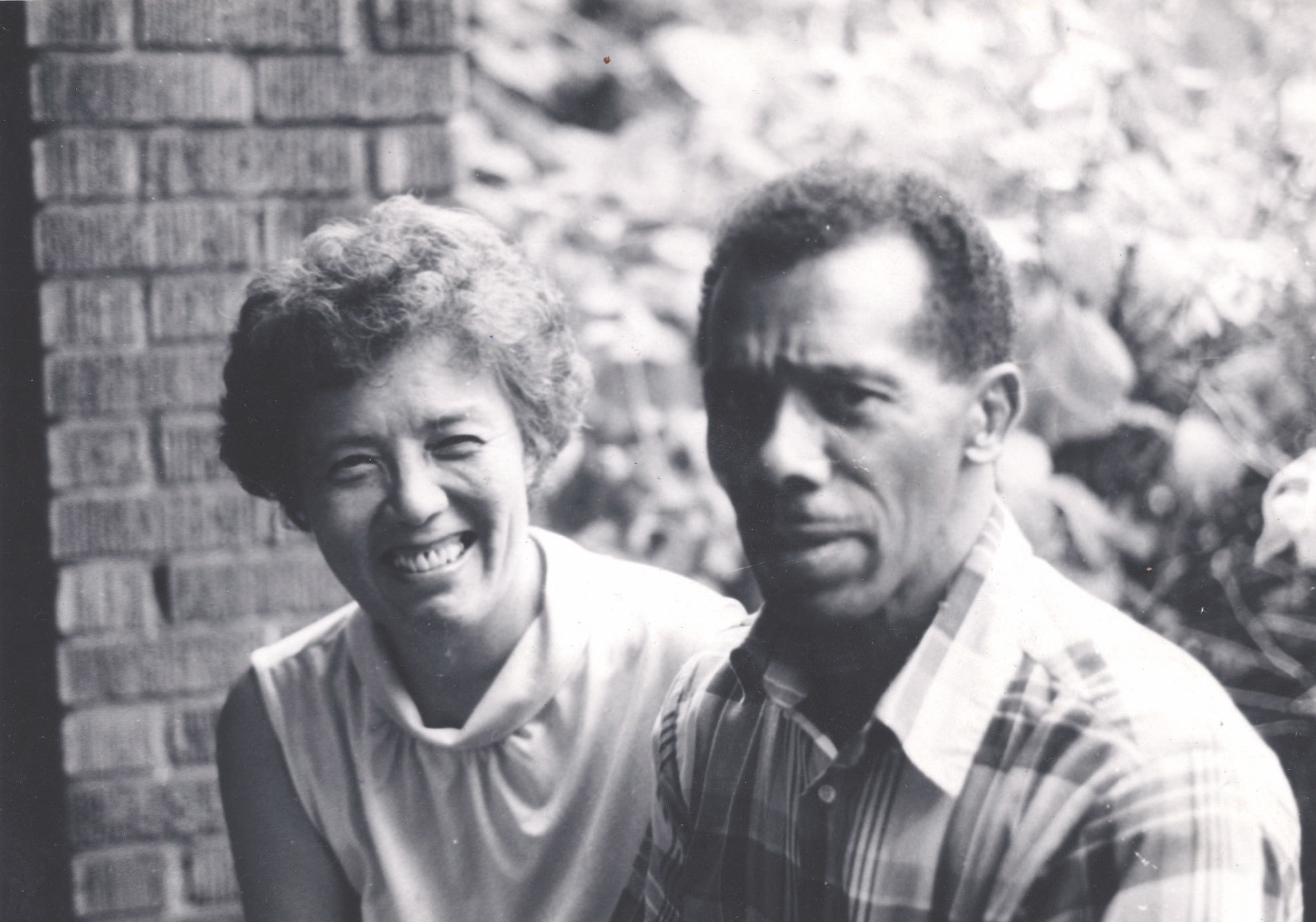
Since COVID-19, you may have heard the term "Model Minority Myth" (MMM) being used, as part of the discussion around anti-Asian racism.
It's a confusing term...because it almost seems like a good thing. I mean, isn't it good to be a "model minority?" Like, my family has always told me to keep my head down and work hard. That's how we succeed, as Asians and as immigrants, right?
However, there is an insidiousness to MMM. This label is embedded in a history of racism, as a tactic to divide-and-conquer BIPOC communities. Because MMM has such a huge impact on Asian mental health, I want to spend some time to discuss it here.
1. What is the Model Minority Myth (MMM) anyway?
Very simply put, MMM is the idea that Asians are hardworking and successful. The idea of MMM was created in the 1960's, as tactic for the racist American government to supress and discredit the Civil Rights Movement.
During the Civil Rights Movement, Asian allies such as Grace Lee Boggs and Yuri Kochiyama (amongst others) fought in solidarity with black activists to demand racial equality. Kochiyama, who was friends with Malcolm X, was a witness to his assassination and held his head as he took his last breath. And Grace Lee Boggs and James Boggs were an activist couple who created The Boggs School.
During this period of time, Asians were not yet "model minorities." The legacy of overt anti-Asian racism was still very real. We weren't far removed from the Japanese internment camps during WWII, the Chinese Exclusion Act, Chinese Head Tax, and anti-miscegenation laws. During this time, black-Asian solidarity was a powerful force that united our oppressed communities under the shared struggle of racial inequality.
Unity and solidarity is powerful, and is crucial in effecting social change. White supremacists and colonial states know this. So they fell back onto their tried and tested tactic: divide-and-conquer.
As part of the divide-and-conquer tactic, the colonial white supremacist state cherry-picked a group of “successful Asians” and labelled them as “model minorities.” This group was university-educated, upwardly mobile, and able to assimilate into American society.
The rationale of MMM was…if the racialized group of “Asians” can succeed, then why can't black Americans? It must be because there is something is wrong with black communities. The purpose of creating this new class of "model minority Asians" was to blame black communities for their struggles, and divert attention away from the existence of institutional racism. It simultaneously created a divide between Asian and black communities, to drive a wedge between our unity and solidarity.
The whole idea of creating the “model minority” label was to hide the existence of racism. But of course, racism exists, and is experienced by both Asian and black communities.
2. Are Asians really model minorities?
Some are. And some aren’t.
The category of “Asian” is so diverse. We have different cultures, countries, ethnicities, languages, histories, and religions. As individuals, we each have a different immigration story, different family upbringing, and different access to resources.
There are billions of Asians…can we really say that ALL Asians are successful model minorities? Of course not. It’s just a stereotype that white supremacy has made up, to keep BIPOC down. And the concept of model minority is mostly applied to the Asian diaspora.
While the idea of MMM has given Asians certain access to resources, it is also a detriment to our communities. We are considered hard workers, but not leaders. We are considered intelligent, but expected to be subservient. Our identity and worth is based on our achievements, which dehumanizes us.
And if we take a stroll in Chinatown, we immediately see the contradiction of "model minority." Chinatown was historically the result of segregation – because white society didn't want Asians living in their communities. Many in our community struggle with poverty, language barrier, legal status, insecure employment, police harrassment, etc. In fact, the Asian community has the greatest wealth disparity amongst all ethnic groups.
The decades of the divide-and-conquer tactic has made the "model minority" label the most prominent and discursively powerful representation of the Asian identity. This has given certain groups of Asians access to some resources. And it has made other Asians invisible in our cultural zeitgeist.
Let's be real...financial success is not exclusive to Asian commnities. But the historical creation of the "model minority" label means Asians are the only minority community where this label is applied onto.
3. If I’m a model minority, do I experience racism?
Yes, yes you do. And don’t let anyone tell you otherwise.
Part of the idea of MMM is to gaslight you, by telling you that you don’t experience racism. But you know that you do. I know that you do. Remember, the entire idea of model minority is rooted in racism.
It can be very isolating, adhering to the model minority life. You’re trying to live the “white li(f)e,” pretending that your racial identity doesn’t exist. You try to make it invisible. You try to conform and assimilate. And that means you aren’t allowed to talk about your experience of racism. So you end up enduring it alone.
Despite adhering to the model minority life, you will never attain what you think is promised to you. Remember: "We are considered hard workers, but not leaders. We are considered intelligent, but expected to be subservient. Our identity and worth is based on our achievements, which dehumanizes us."
4. But…somehow, I feel like my parents and culture made me into a model minority...
It’s complicated, because there are multiple layers of the same messaging.
MMM tells Asians that we have to work hard, achieve, be successful, and assimilate. Because that's our role within white supremacy.
But as immigrants, it also has a very similar message. The whole point of our parents leaving their home country was for a chance at a better life. They had to work extremely hard to adjust to a new home and new culture. And they imparted that "work hard" immigrant mentality onto us.
Same thing with our culture. For some of us, the cultural message is "work hard" and "succeed."
However, valuing hard work and success isn't unique to Asian immigrants and Asian cultures. But these things are emphasized as “Asian traits” because it is part of the MMM label.
And I do want to emphasize that NOT ALL ASIANS receive the same messaging from their culture and parents. There are lots of diversity even within our culture.
So are you a model minority? Well, the next section might help you understand it better.
5. If I want to be happy, do I have to stop being a model minority?
So how do we know if someone is a model minority to begin with?
On the surface, I would seem like a model minority. I have postsecondary education, I own my own business, and I have access to resources. Am I a model minority?
While having resources and career success is an important marker of the "model minority," it is not the only aspect that is important. Part of being a "model minority" is to assimilate and to be subservient to white supremacy. It is to uphold white supremacy, protect racist institutions, and perpetuate racial inequality.
But to anyone who knows me, I am CONSTANTLY talking about racism and racial justice. And because of that, I won't really be considered a "model minority" by white supremacy standards. And to me, it is empowering to decide how I want to exist and resist within an oppressive regime.
It is made possible by understanding how MMM is situated within the larger white supremacy landscape. It helps us understand that our experiences are a complex mix of structural oppression and personal agency.
And through understanding this, we can learn to unleash the full power of our personal agency. This can help us improve our mental health, while upholding our anti-racist values to create the change we want to see in this world.
Remember...you get to define how to live your life. Don't let racist labels such as the Model Minority Myth dictate your worth and your perceptions of yourself.
Hey there, my name is Harry, and I’m an Asian therapist here to support your search for health and authenticity. If you are open to weekly self-care FUN-ctivities, subscribe to my “Happy Chemicals Club.” If you enjoy podcasts, you can check these out.

Harry Au
Therapy for Asians
MSW, RSW | he/him
I help Asians go from feeling trapped to becoming self-liberated.




Comments